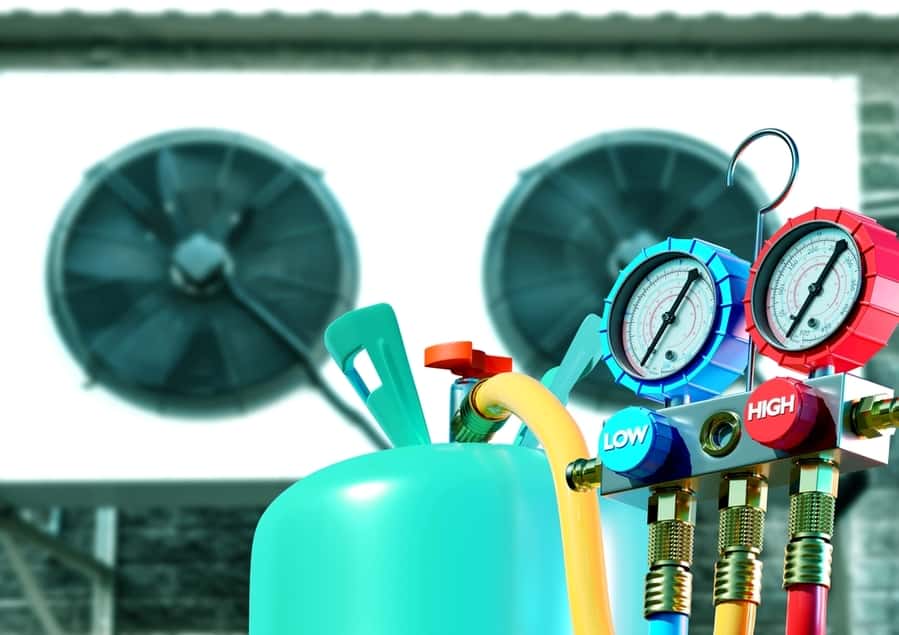
AC units are fun and cool until they emit hot or normal air. You may also notice other pointers that scream the need to remove freon from the unit.
Freon is responsible for the chilly effect you enjoy from your AC units. It is a chemical compound used by appliances like air conditioners and freezers as refrigerants.
However, certain situations may arise, and you would need to remove freon from your window AC. So, how do you do that? This article will tell you how.
- In the United States, freon is considered one of the substances that can deplete the ozone layer. The removal and disposal of such toxic substances are under strict regulations by the Environmental Protection Agency (EPA).
- These EPA provisions are found in the Clean Air Act and the Code of Federal Regulations.
- These provisions emphasize the need to call a certified technician to remove freon. Any contrary action would attract a lawsuit, which you would not want.
- The technician starts by dismantling the unit. Afterward, he empties the freon into a cylinder and checks the weight. Finally, he disposes of it in a government-approved center.
Below, we will discuss vital steps to take when removing freon. You will also learn how to properly dispose of freon after removal and factors to consider before a freon removal. What more? We will examine how harmful freon is and how to properly dispose of your window AC unit when it faces irreparable damage. Let’s get started!
What You Should Know Before Removing Freon From Your Window AC Unit
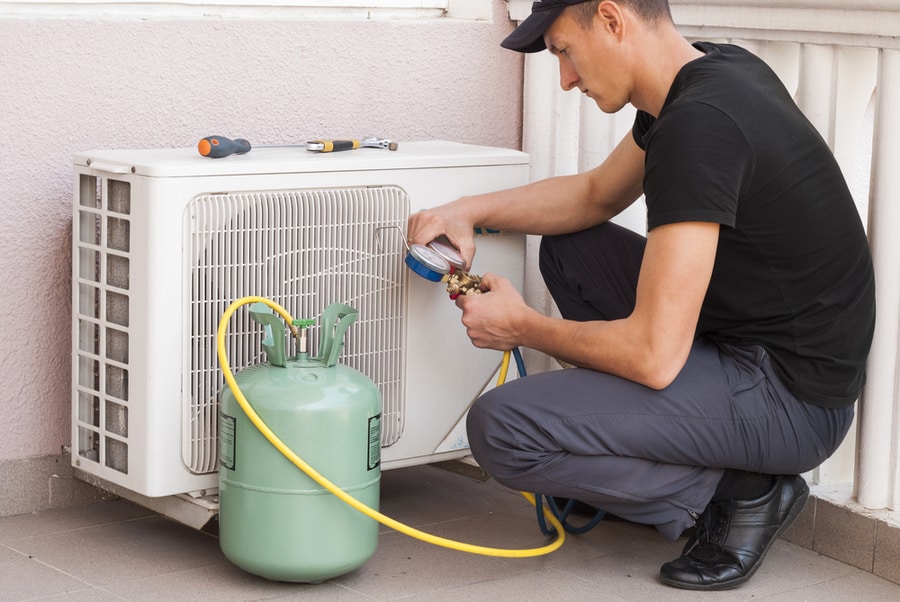
Firstly, unless you are not residing in the United States, you don’t have legal permission to remove freon. The Environmental Protection Agency (EPA) opposes the removal of some substances.
These substances damage the ozone layer, and refrigerants like freon are part of them. These EPA provisions are found in the Clean Air Act and the Code of Federal Regulations.
Some of the provisions of these laws include the following:
- The restriction of AC repair and servicing to certified technicians.
- The technician must remove the refrigerant with certified equipment.
- The technician must remove the refrigerant from the AC or similar appliance before disposal, and much more.
These provisions emphasize the need to call a certified technician to remove freon. Any contrary action would attract a lawsuit, which you would not want.
Finding a credible technician is rarely complex. But if you can’t find one around your home, contact the company where you bought the window AC.
Most of these companies usually have a technician on their team.
These technicians handle maintenance issues at affordable rates. Sometimes, the maintenance may come with a warranty plan and cost nothing.
You may wonder, “so, how does the technician remove freon from window AC units?” Although the process involves some technicalities, it is not as complicated as many think.
You can expect a freon removal to follow the following order:
- The technician starts by dismantling the unit.
- After dismantling the unit, he uses verified refrigerant-removal equipment to remove the chemicals. This equipment must be certified by the EPA to meet the requirements.
- Next, he empties the freon into a cylinder and checks the weight.
- After weighing it, he takes it away for disposal.
- He would also refill the unit if you want and couple the unit back again.
However, it is possible that you don’t reside in the United States, and your current residency permits freon removal.
In that case, you can follow the steps below to remove freon from your window AC unit:
- Wear a face mask to avoid inhaling the freon refrigerant.
- Inspect the AC unit for leaks (if you suspect one).
- If you discover any leakage, turn off the power supply to the unit.
- Grab your repair kit (for freon leaks) and close up the leaks.
- After repairing the leaks, you must remove the freon from the unit. Start by identifying the freon valves.
- When you find them, attach a vacuum pump to the valves.
- After firmly attaching the pump, please turn it on and wait until all the freon from the AC unit gets out.
That’s it. You have just successfully removed freon from your window AC unit.
Now that the freon is out, the next thing to do is dispose of the refrigerant properly. So, how do you do that? Read on, and we will show you how!
How To Properly Dispose of Freon After Removal
The laws we mentioned earlier also apply to freon disposal after removal. The technician who took it out in the first place will also dispose of it.
Disposing of freon demands diligence and care because of its nature. There are three methods of disposing of freon, and they include:
1. Destruction
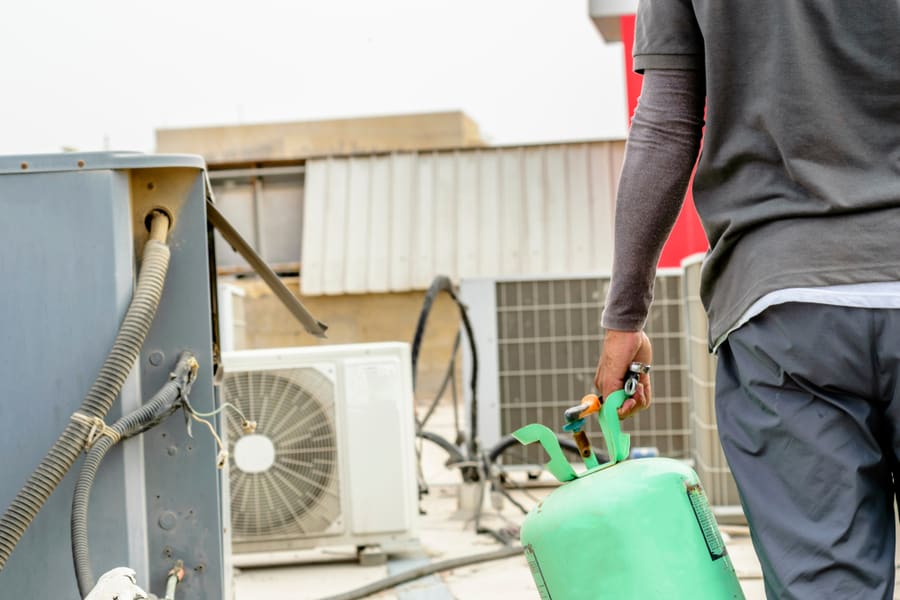
One way to dispose of freon is by destroying it. Various certified facilities have set up effective methods for destroying freon, and incineration is the most effective.
The incineration method above isn’t the typical fire setup. It involves liquid injection, which separates the chemical into unique atomic compositions.
After the separation in the nozzle, the resultant components are burned.
2. Recycling/Reclaims
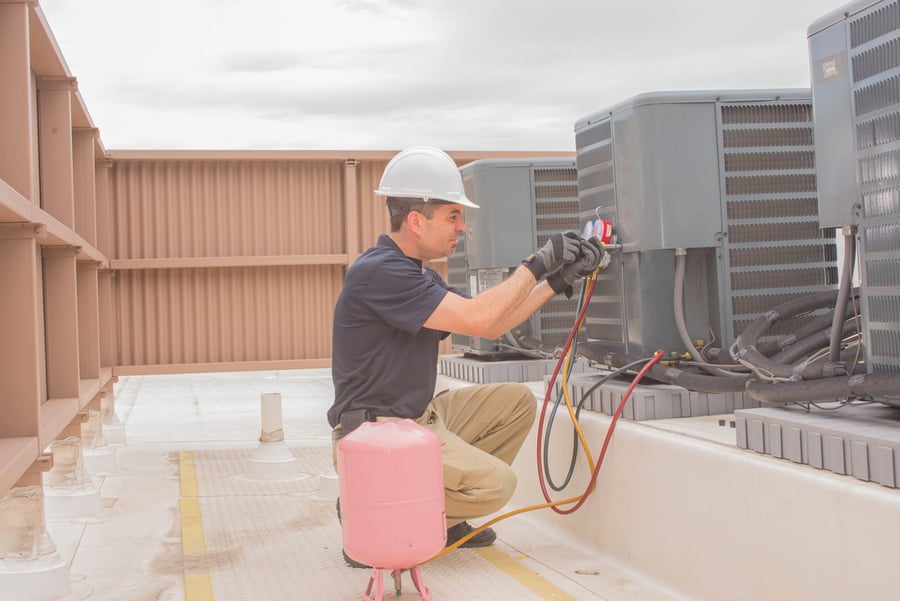
The EPA also allows eligible companies to reclaim freon and recycle afterward. The recycling process involves filtering unwanted products from freon.
After recycling, the companies can resell the freon for people to reuse.
3. Appropriate Storage

Technicians can dispose of freon by carefully storing it in a cylinder. These cylinders must not be mixed but kept in a separate room with proper labeling.
Factors That May Necessitate the Removal of Freon

Before embarking on a freon removal process, you may want to take a minute to check whether your window AC unit needs freon removal.
If you notice any of the following issues, it could be a pointer that you need to remove the freon in your AC appliance:
- Your energy bills strangely increase even when you don’t feel the ACs’ impact.
- You sense some leakages around the window AC unit.
- The AC blows warm air during the daytime and doesn’t cool the air at all.
- You notice some frost-like substances or ice on the unit’s vents.
- You hear splashing or whistling sounds from the AC unit even when it is not in use.
These are some telltale signs you should watch out for. With our discussion so far, there is a chance you perceive freon to be one deadly and poisonous substance.
With the strict government restrictions on its removal, it is just logical to have such a notion.
But is freon harmful? Let’s quickly answer that question in the next section.
Is Freon Harmful?
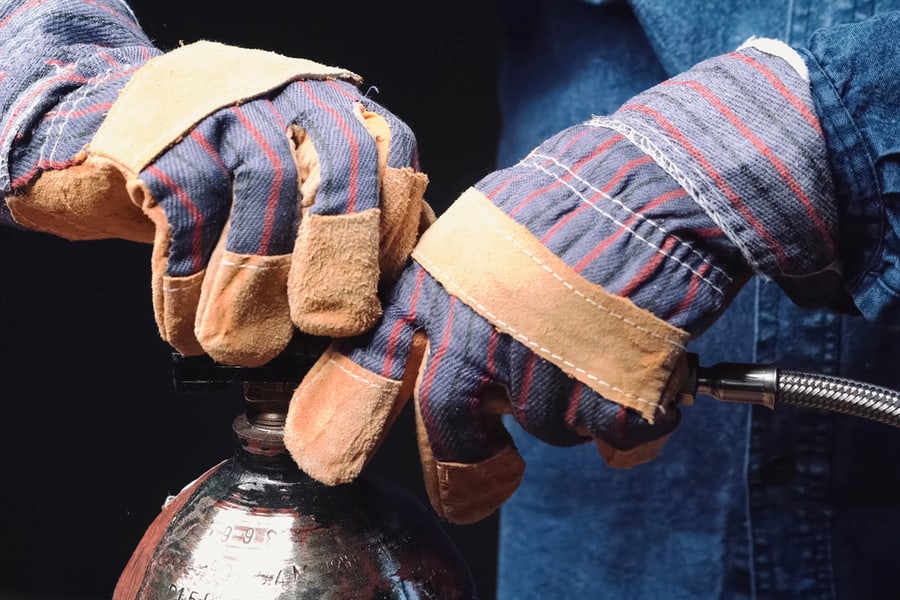
The simple answer to this is “yes.” As mentioned earlier, some law provisions categorize freon as a toxic refrigerant to the ozone layer.
Because of this toxicity, the law allows only certified technicians to evacuate and dispose of freon. When a freon is inside the AC unit, it does so much good.
However, exposing freon to close human surroundings would become irritating and fatal afterward.
If there is a leakage in the unit, you may start feeling dizzy and experience reactions in your eyes and throat.
If you don’t attend to these irritations, they may lead to nausea, shortness of breath, and heart challenges. You may even pass out from constantly inhaling the leaked freon.
After dealing with the freon in the window AC unit, you would also have to care for the AC unit. Some people make the mistake of disposing of their AC unit with some freon inside, which is not so good.
Instead of dumping your air conditioner with freon inside, correctly dispose of a damaged window AC unit.
How To Properly Dispose of Your Window AC Unit
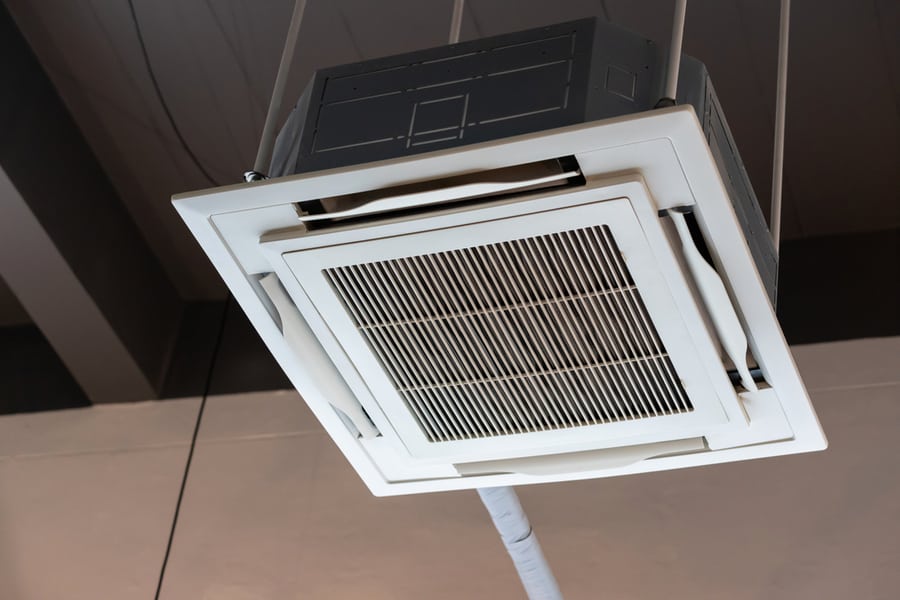
Firstly, you should know how long your window AC unit might last. The average life expectancy of a window AC unit is usually between 10 and 25 years.
It could be more or less, depending on how well you maintain the unit.
Planning annual servicing and routine checks on the unit would be best. You could also ask for warranty offers from the company where you bought the AC.
4 Signs That Your Window AC Unit Is Due for Disposal
So, what if you have done all these servicing and proper management over the years? How do you know that it is time to dispose of the unit? It is simple.
Look out for these four signs:
1. Wrong Installation Process
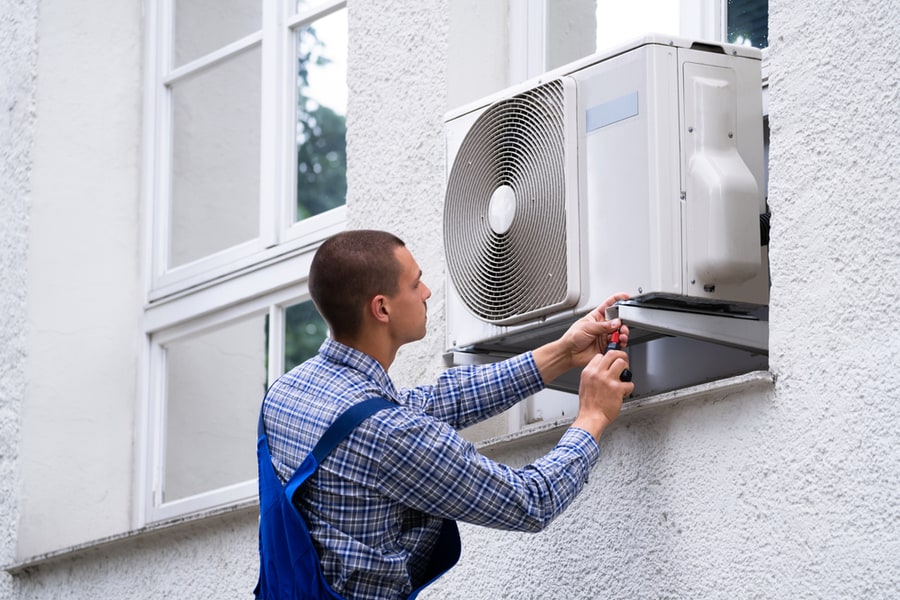
Buying a window AC unit is one thing – installing it is another. If you notice some errors in the AC installation, you may want to call an expert immediately.
Installing the unit wrongly can lead to fire outbreaks or electrocution. Your unit will not be at its best when installed improperly.
The error automatically reduces its life expectancy. If you notice some sparks or near-accident experiences, it may be time to dispose of the unit.
2. Loud, Unusual Sounds

Not that your unit will always be quiet, but certain sounds cause alarm. You must remove a part of your unit if you hear a booming and noisy sound.
The sound could indicate the need for freon removal or refill. It may also mean damage to a specific area of your unit that needs immediate replacement.
You may need to change the entire unit if you have often handled these sounds over the years, and they keep reoccurring.
3. Frequent Compressor Repairs
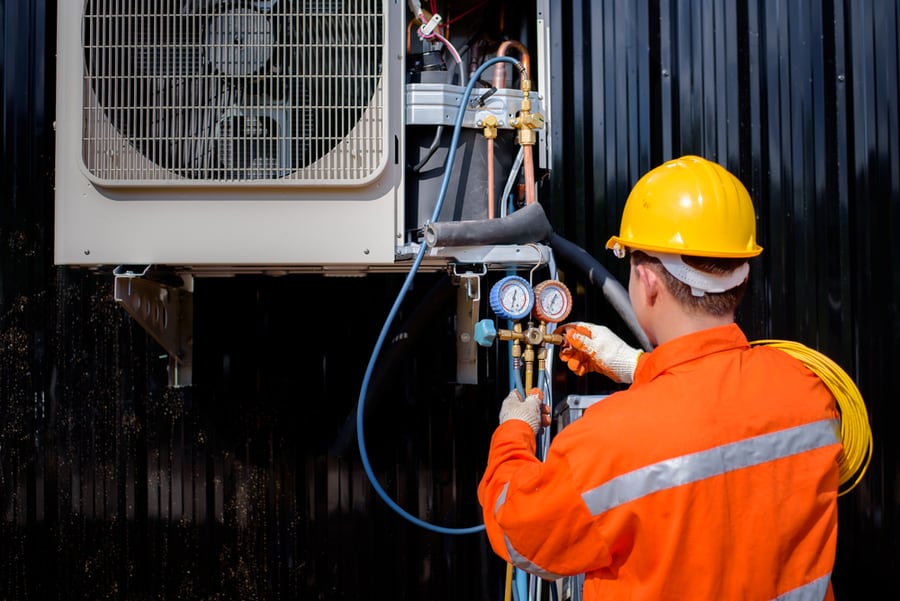
The compressor is a vital part of your window AC unit and is responsible for the cooling effect. If the compressor always breaks down, it may be time for a replacement.
Constant breakdown of the compressor takes a lot of money to fix. Instead of spending so much to repair it continually, you can entirely change the unit.
Generally, you may notice that you are always calling a technician to fix one thing or the other. Constant repairs are not a good sign, and more breakdown is enough to finally let go of the unit.
4. Long-Time Usage

Sometimes, it is not the regular repairs or the loud sounds. The unit has served you well and is tired. Time runs pretty fast, and you may look back to discover that your window AC unit is 11 years old.
Some homeowners maintain their units for about 15 years, and the units remain strong. At this point, it may be time to wrap up the unit and dispose of it.
Some unit components also have a longer life expectancy than others. You would have to consider such possibilities and know which has overstayed.
5 Tips on How To Properly Dispose of a Window AC Unit
After discovering the signs, how do you properly dispose of the unit? Here are five approaches you can follow:
1. Call a Technician

Remember the laws we mentioned earlier. Some of these laws also provide that proper AC unit disposal requires a technician to handle it.
Disposing of the window AC unit may be illegal, so we recommend you call a professional.
2. Remove All the Refrigerants
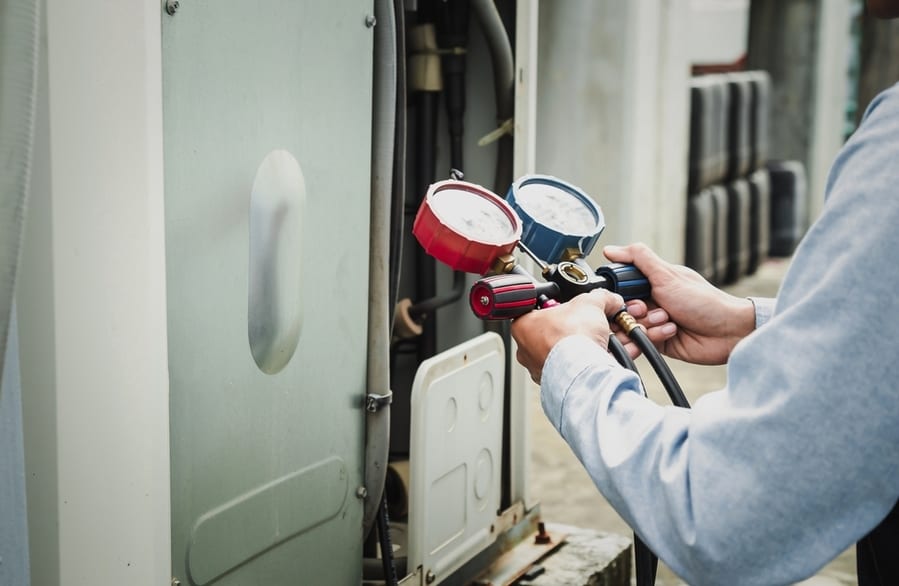
The laws provide that the technician must remove all the freon before disposing of the window AC unit. Leaving refrigerants in a bad AC is dangerous and may lead to other complications.
3. Reach Out to the Appropriate Authorities
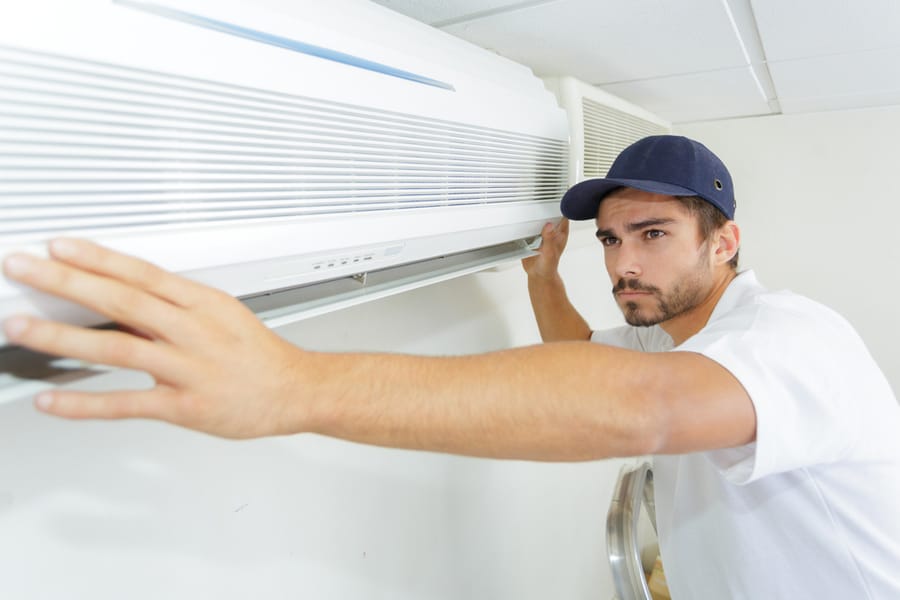
Even if you want to dispose of your window AC unit without a technician’s help, you should contact local authorities. The sanitation department is one such authority, and they may have specific policies.
One of the policies may be removing the refrigerants as described above or leaving them to handle them. They may tell you to drop the unit in a particular location, and they will take it from there.
4. Recycling Programs
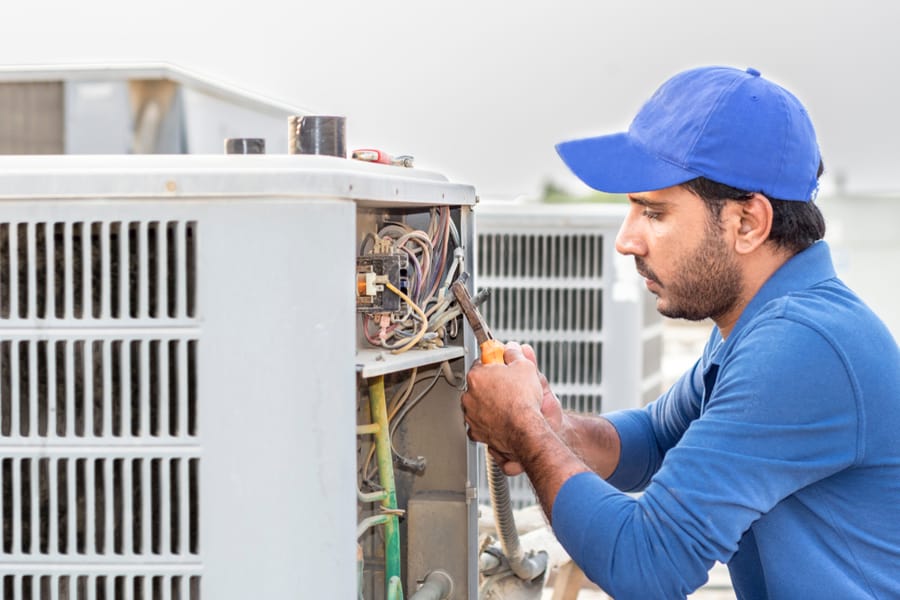
Various communities have recycling programs for appliances like the window AC unit. These programs believe in recycling appliances for reuse.
Though it doesn’t happen all the time, you can get someone to keep an open eye on such opportunities. When the program is on, you can enroll and give up your unit while you receive some payment.
5. The AC Unit Company
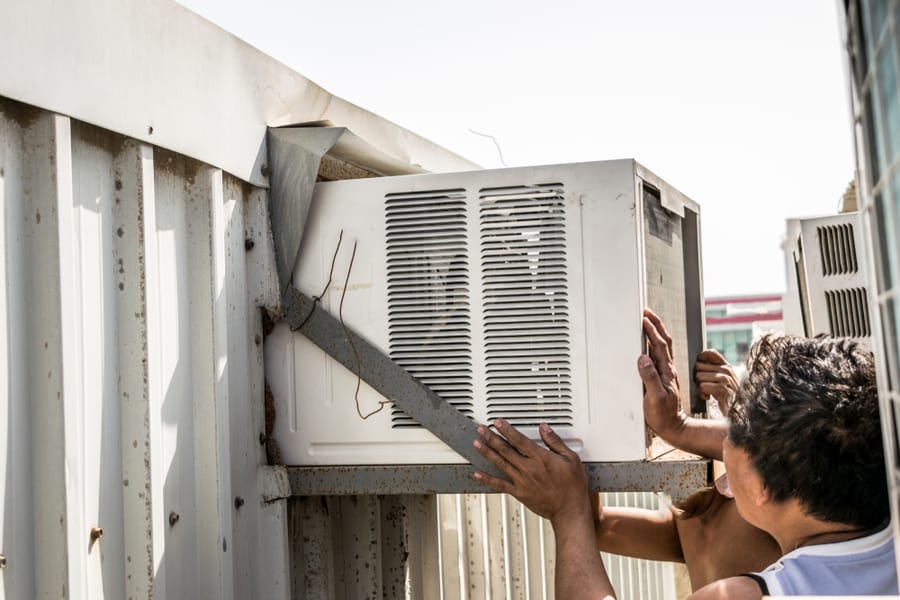
One better way to dispose of your window AC unit is by contacting the company where you purchased it. Some companies may tell you to return the old AC unit to them.
You can even add some money to the old unit and get a new AC from them. That would be cool, right? But please note that not all companies do this, but you may be lucky to find one with such a policy.
Besides swapping with a new appliance, you can also get the opportunity to sell that old unit as scrap and get a little stipend in return.
Conclusion
Removing freon from your window AC unit is easy since you aren’t the one doing it. There are reputable, certified professionals at your service, and they are one call away.
It doesn’t end at regularly removing freon. The general maintenance of your window AC unit is your responsibility too.
Avoid improper installation and the use of the unit for an overly large space.
When you purchase a window AC unit, you can tell the company to assign a technician to you. Feel free to relate your concerns to him and call him often for routine checks.
For further clarifications, please check our answers to other common queries below.
Frequently Asked Questions
Can I Dispose of Freon by Releasing It Into the Air?
No, you can’t. Casually letting out freon into the atmosphere is dangerous. It is also a breach of the provisions of the Clean Air Act.
This law prohibits individuals from releasing ozone-depleting refrigerants into the air.
Can I Use Up the Freon in My Window AC Unit?
The simple answer is “no.” It doesn’t work that way.
Freon doesn’t necessarily finish because of how the unit is built and operates, so you must remove freon when leakages disrupt the unit’s functions.
What if Freon Touches My Skin?
You may get skin irritations if freon touches your skin. Report to a physician immediately and avoid the areas where you experienced the contact.












